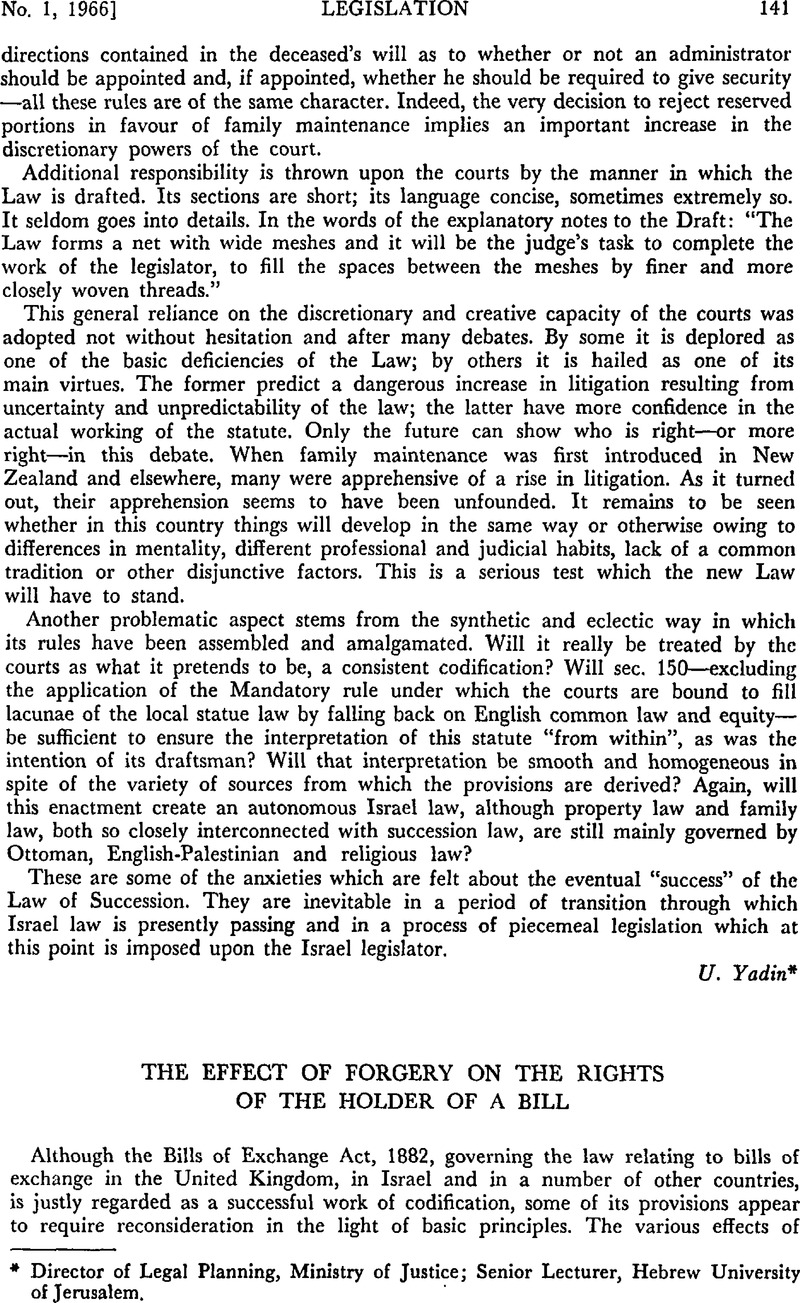No CrossRef data available.
Article contents
The Effect of Forgery on the Rights of the Holder of a Bill
Published online by Cambridge University Press: 12 February 2016
Abstract

- Type
- Legislation
- Information
- Copyright
- Copyright © Cambridge University Press and The Faculty of Law, The Hebrew University of Jerusalem 1966
References
1 Sec. 24.
2 Greenwood v. Martin Bank [1933] A.C. 51, 57, where Lord Tomlin states the essential elements giving rise to an estoppel; applied in Lyle-Meller & Co. Ltd. [1956] 1 AU E.R. 247, 253.
3 Subject to estoppel by conduct.
4 Sec. 64.
5 Sec. 20.
6 Chao v. British Traders, Ltd. [1954] 2 Q.B. 459. (Italics supplied.)
7 We are not here concerned with the Stamp Laws.
8 Sec. 64.
9 See “Bills of Exchange During the Seventeeth Century” by Milnes Holden, (1951) 67 L.Q.R. 230, 242.
10 [1932] 1 K.B. 544.
11 Sec. 80.
12 Secs. 60 and 80.
13 But see The Uniform Law on Bills of Exchange adopted by a Conference in Geneva, dealt with in the next paragraph.
14 L'Unification Du Droit, Aperçu général des travaux pour I'unification du droit privé Projets et Conventions). Editions “Unidroit”, Rome (1948) 375, 599.
15 Sec. 64.
16 See art. 7 of the Uniform Law.
17 The American Law Institute, National Conference of Commissioners of Uniform State Law (1958) sees. 3–404 & 3–407.
18 See also 37 McKinney Laws—5 §42, pp. 65, 37.
19 Adir v. The Municipality of Holon, (1963) 18 P.D. vol. 2, 463.
20 Imperial Bank of Canada v. Bank of Hamilton [1903] A.C. 49 at 58; and London & River Plate Bank v. Bank of Liverpool [1895] 1 Q.B. 7.
21 Sec. 24 of the English Act, sec. 23(1) of the Palestinian Ordinance.
22 The Court never mentioned sec. 23(1) of the Ordinance, for it regarded the forgery as fraud constituting a defect which—according to sec. 28 of the Ordinance—is a good defence against any ordinary holder. With this way of thinking we cannot agree, for forgery (like fraudulent alteration) is governed by special provisions (secs. 23 and 64) which should have been applied.




